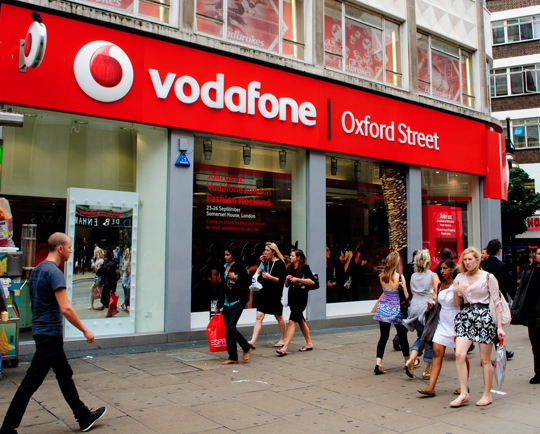Investing
Where should Vodafone shareholders invest their spoils?

Vodafone investors will soon have to decide what to do with their spoils from the Verizon Wireless deal, which will come in the form of a special dividend and shares in the US firm.
For those who want to re-invest the proceeds back into the stock market, the big question is which companies look the most attractive.
Vodafone was the biggest contributor of dividends last year, accounting for nearly one pound in every 11 paid out by UK plc, so income is likely to be a high priority for investors.
It therefore makes sense to focus on companies with similar attributes to Vodafone; large cap businesses with solid, stable balance sheets and strong dividend growth potential.
According to experts, BT could be an interesting starting point. Another big name in the telecommunications sector, the firm is expected to benefit from growth in areas such as broadband.
A potential sting in the tail is the recent departure of its chief executive, Ian Livingston, who left to take up the role of trade and investment minister in the government.

Wellness and wellbeing holidays: Travel insurance is essential for your peace of mind
Out of the pandemic lockdowns, there’s a greater emphasis on wellbeing and wellness, with
Sponsored by Post Office
Under Livingston’s leadership, BT slashed its debt, tackled its pension deficit and secured the rights to around half of all Premier League football matches in a move that threatened BSkyB’s dominance.
However, Livingston’s replacement, Gavin Patterson, who was previously boss of the company’s retail business and who oversaw the launch of BT Sport, has been well received.
“Normally when a CEO leaves alarm bells start ringing but Livingston left for his own reasons,” says Chris White of Premier Asset Management.
TalkTalk is another telecoms company garnering interest. The firm’s share price received a boost this week following a bullish note from broker JPMorgan Cazenove, which has upgraded the stock to ‘buy’ from ‘neutral’.
The broker says further investment in TV should see the group become a “cash cow”.
Away from the telecoms sector, HSBC is proving to be a popular choice among professional investors.
“Vodafone is a large, cash generative, blue chip, equity income stock with a high dividend yield as is HSBC,” says White.
“I think financials could be an attractive area to invest as the valuations are not onerous and the Global Financials sector has been hitting relative all-time highs recently.”
HSBC’s dividend yield of 4.8% is attractive to income investors in the current interest rate environment
“HSBC is really the last man standing in global banking. On a risk/reward basis, it will do well for investors,” White adds.
According to a UBS research note, GlaxoSmithKline, Scottish Southern Energy and National Grid are other potential beneficiaries of Vodafone’s cash return. These are the FTSE 100 stocks with the highest correlation to Vodafone over the past five years and dividend yields in excess of 5%.
Another option for investors is to look for other stocks which may be able to pay out a special dividend.
A special dividend is a one off payment usually in the form of cash to shareholders and typically demonstrates a company’s good capital discipline.
Stephen Message, a fund manager at Old Mutual Global Investors, points to ITV, home to programmes such as Coronation Street and Downton Abbey.
The company paid a special dividend worth £156m to shareholders in February, after reporting a 13% rise in 2012 earnings.
“I can see potential for the company to return more cash to shareholders as it benefits from events such as the World Cup,” Message says.
He also says plumbers merchant group Wolseley could pay out another special dividend after returning £350m back to shareholders last year.
Of course another option is to invest in Vodafone; the current market consensus is that the shares are a buy.
The disposal of the Verizon stake should result in further focus on two fronts.
“There are pockets of the European operation which are struggling due mainly to economic constraints and fierce competition. However, the Kabel Deutschland acquisition is a clear statement of intent. Elsewhere, Vodafone has certainly not ruled out selective acquisitions in the emerging markets, which currently account for some 30% of its business and where the demographics are arguably developing in its favour,” says a Hargreaves Lansdown note.
The Verizon deal announcement was well received and prospects for Vodafone remain promising. The share price has seen a 17% hike over the last year, compared to a 13% hike for the wider FTSE 100, and the current yield of 4.7% is supportive at least until the New Year when the deal completes.